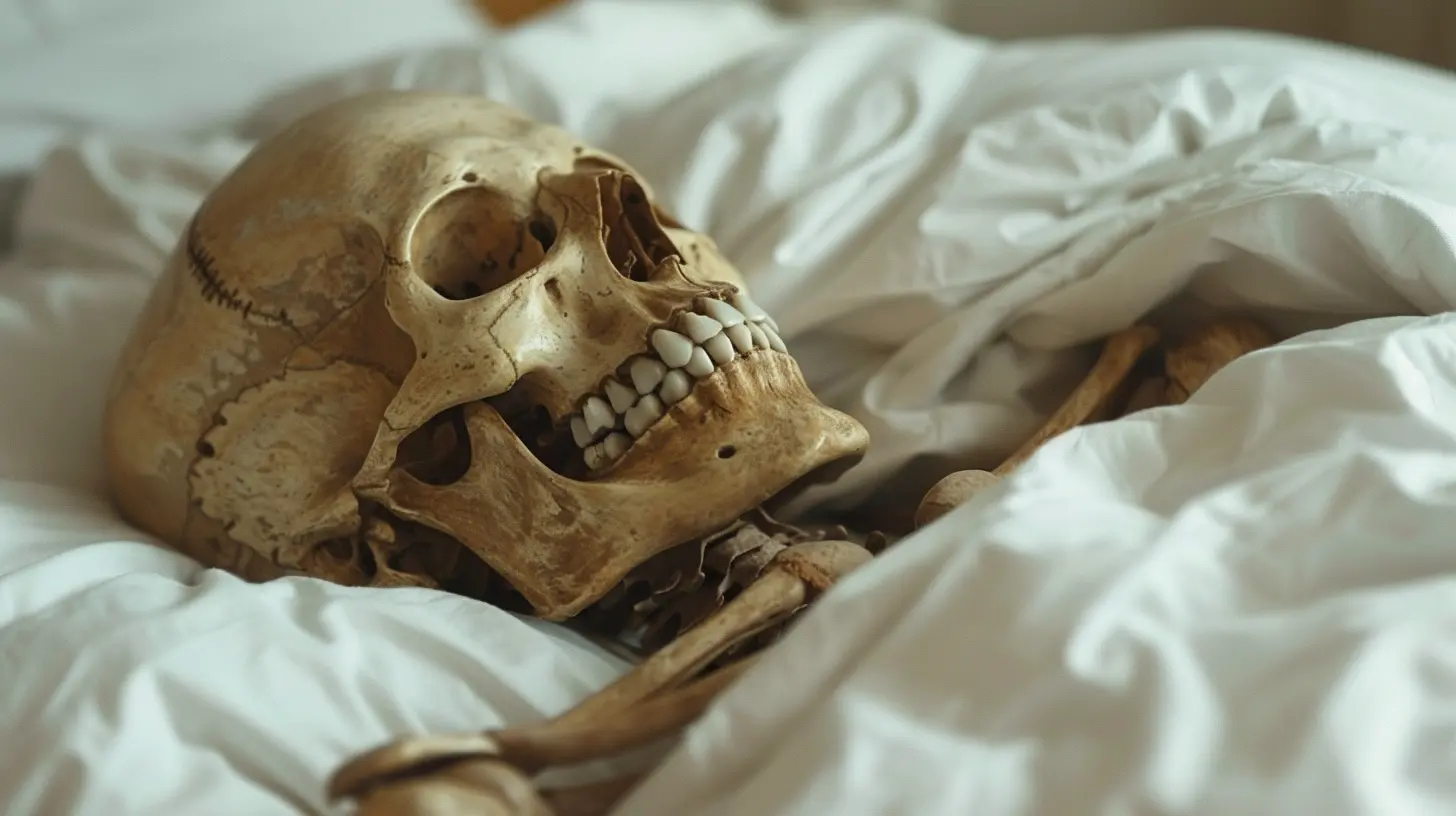2 December 2024
When was the last time you really thought about your bones? Probably not too often, right? Yet, these silent workhorses hold up the entire framework of your body, protect vital organs, and enable you to move. They’re basically the unsung heroes of your anatomy. But did you know that your bones aren’t just benefited by consuming calcium-rich foods or staying active? Sleep—a good, restful one—is just as crucial for your bone health. Surprised? Well, pull up a chair (or maybe a cozy blanket), because we’re about to dive into why catching enough Z’s matters for your skeleton. 
Why Sleep is Non-Negotiable
Think about your body as one big, bustling city. All day long, there’s traffic in the form of movement, stress, and daily wear and tear. At night, when you sleep, it’s like sending the street sweepers and construction crews out to tidy things up and make repairs. This repair system works throughout your body, but for your bones, it’s absolutely vital.Your skeleton isn’t just a rigid structure—it’s continuously changing. Tiny cells called osteoblasts build new bone tissue, while others, called osteoclasts, break down old or damaged bone. This natural remodeling process is key to your bones staying strong and healthy. But here's the kicker: sleep is when much of this repair and renewal magic happens. Slack on sleep, and your bones might be missing out on some much-needed care. 
How Does Sleep Impact Bone Health?
To understand the connection, let’s break it down into bite-sized pieces:1. Hormones and Bone Repair: The Nighttime Symphony
When you sleep, your body releases growth hormone, which triggers cell growth and bone tissue repair. Think of growth hormone as the "construction manager" who oversees repairs and makes sure your bones are reinforced. If you’re skimping on sleep, you’re essentially laying off this manager—or at least forcing them to work part-time.Plus, during deep sleep, stress hormones like cortisol lower significantly. High cortisol levels can weaken bones over time, as cortisol interferes with calcium absorption and promotes bone loss. So skipping your shut-eye is like letting a wrecking ball loose in your skeleton's construction zone. Not ideal, right?
2. Calcium Absorption and Vitamin D
Ever heard the saying, "You are what you eat?" Well, your bones are made of what you absorb. Calcium, the superstar mineral for bones, needs to be properly absorbed by your body to do its job. Sleep impacts how effectively your body uses calcium. Studies suggest that poor sleep can interfere with calcium metabolism, which could mean weaker bones over time.To make things more interesting, there’s vitamin D, which helps your body absorb calcium. Without adequate sleep, your vitamin D processing can also take a hit, leaving your bones short-changed.
3. Bone Density and Sleep Duration
Here’s a not-so-fun fact: Research shows that people who consistently sleep less than six hours a night are more likely to have lower bone mineral density (BMD). Translation? Your bones might become brittle and more prone to fractures.Why does this happen? Because during sleep, your body performs maintenance work on your bones. When you cut this time short, it’s like skipping an oil change for your car—eventually, things start breaking down. 
Sleep Disorders: A Red Flag for Bone Health
Sleep disorders like insomnia or sleep apnea don’t just rob you of rest—they could also be robbing you of strong bones. Studies have found that people with chronic sleep issues often have weaker bone density. Sleep apnea, for instance, reduces oxygen flow during sleep, which could impair bone tissue regeneration.So, if you’ve been brushing off your sleep troubles, it might be time to address them—not just for your energy levels but also for your bone health. 
Tips for Better Sleep and Stronger Bones
Okay, so we know sleep is crucial for bone health. But what can you actually do about it? Here are some practical tips to get your bones back on track:1. Stick to a Sleep Schedule
Try to go to bed and wake up at the same time every day—even on weekends. This consistency helps regulate your body's internal clock, making it easier to fall asleep and stay asleep.2. Create a Bone-Healthy Bedtime Routine
Wind down before bed with relaxing activities like reading (not on your phone!), gentle yoga, or a warm bath. Bonus points if you incorporate magnesium into your routine—either through a supplement or Epsom salt baths—since it’s great for relaxation and bone health.3. Eat Sleep-Friendly Foods
Certain foods can help promote better sleep, like almonds, bananas, and kiwi. Plus, these foods are often rich in nutrients like magnesium and potassium, which are good for bones, too.4. Limit Screen Time Before Bed
Blue light from phones and computers can interfere with your sleep hormone, melatonin. Turn off screens at least 30 minutes before bed. Your future well-rested self (and skeleton) will thank you.5. Get Moving During the Day
Exercise doesn’t just strengthen your muscles—it’s fantastic for your bones, too. Weight-bearing activities like walking, dancing, or light strength training encourage bone growth. And guess what? Being active during the day can also improve the quality of your sleep at night. Win-win!Sleep and Aging: Why It Matters More Than Ever
As we age, both our sleep quality and bone density naturally decline. It’s like a double whammy for your skeleton! Older adults tend to spend less time in deep sleep, which is when most of the bone repair work happens.This means prioritizing sleep becomes even more critical as you get older. It’s not just about how long you sleep but also how well you sleep. Investing in good sleep hygiene now can pay off big time for your bones in the future.
The Bigger Picture: A Balanced Approach
Sure, sleep is important, but don’t forget the other pillars of bone health. Eating a balanced diet (hello, leafy greens and dairy), staying active, and avoiding habits like smoking or excessive alcohol consumption are all essential components. Think of these as the legs of a stool—take one away, and your foundation becomes shaky.But here’s the thing: Even if you’re eating all the kale and taking all the calcium supplements in the world, without proper sleep, your bones could still be at risk. Sleep is the glue that ties everything together.
Final Thoughts
To put it simply, your bones love sleep as much as you do. From hormone production to calcium absorption to bone remodeling, sleep plays a central role in keeping your skeleton strong and healthy. So, the next time you’re tempted to pull an all-nighter or skimp on sleep, remember: your bones are counting on you to clock in those seven to nine hours.They’re working hard to support you every day—return the favor by giving them the rest they deserve. Your skeleton will thank you (even if it’s too shy to say it out loud).








Kira Spencer
Thank you for this insightful article! It’s a great reminder of the crucial link between sleep and bone health. I never realized how much our rest impacts our skeletons. I’ll definitely prioritize my sleep to support my overall well-being and strengthen my bones. Appreciate the information!
March 7, 2025 at 5:07 AM